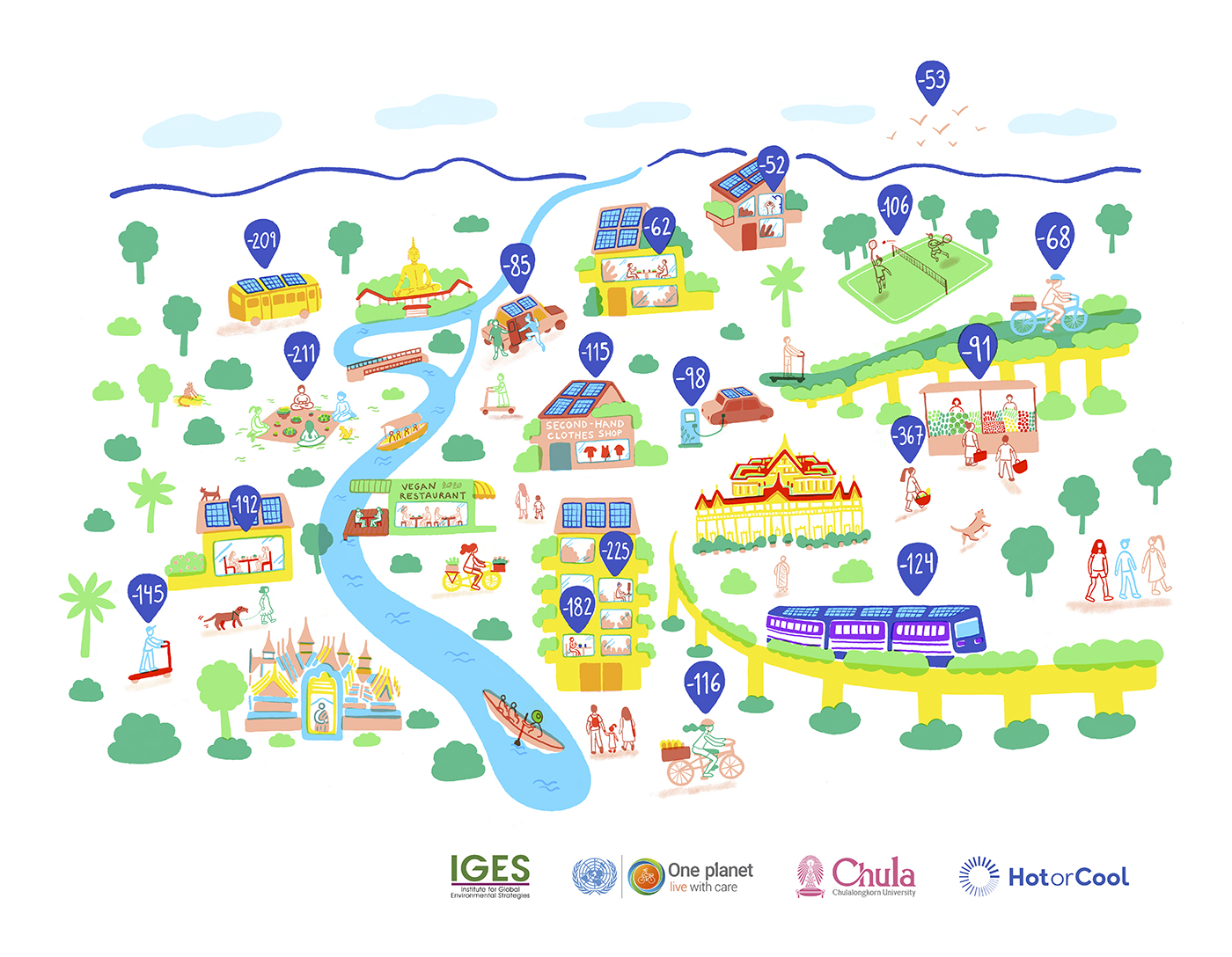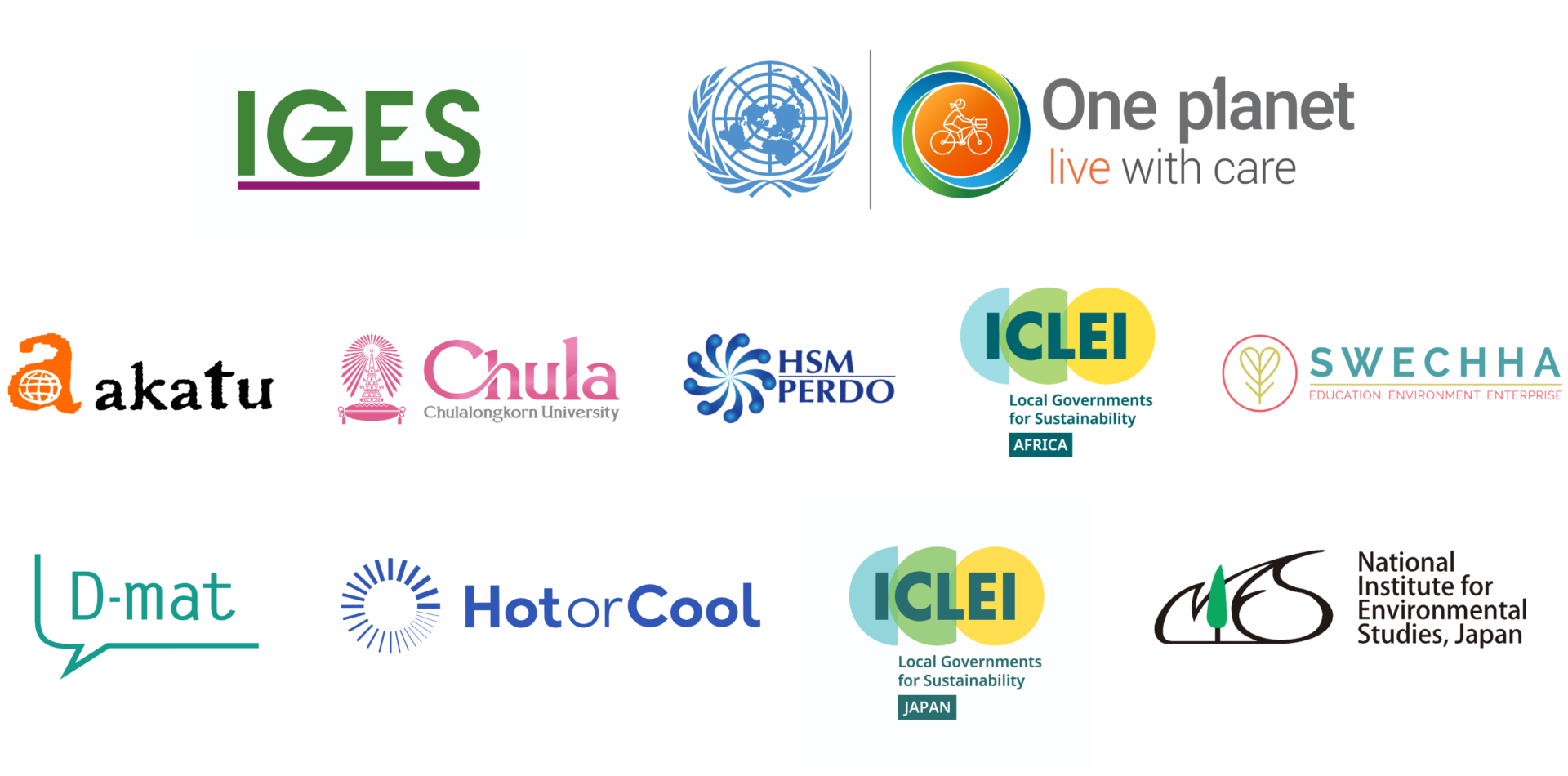Nonthaburi
The Nonthaburi Province is a metropolitan area adjacent to Bangkok and has the second highest population density in the country after the capital. Most part of the province is urbanized and similar to other cities around the world, the increasing population, the increasing demand for residential space and urban infrastructures, as well as changing consumption patterns are exposing Nonthaburi and its citizens to growing environmental threats. Among these threats is the increasement of air and water pollution, and increasing greenhouse gas emissions.
Read more about the Nonthaburi vision in the city brief.

Reduction in having
a buffet or a meal at
a restaurant (eat at
home): -367kg
CO₂e/cap/yr
Work from home /
Telepresence / Telework:
-225kg CO₂e/cap/yr
Support low-impact
parties, weddings, and
other special events:
-211kg CO₂e/cap/yr
Private traveling
by bus (car free):
-209kg CO₂e/cap/yr
Vegan diet:
-192kg CO₂e/cap/yr
Reduction of food
waste (ex. reduce
oversized portion):
-182kg CO₂e/cap/yr
Electric vehicles
(instead of
conventional car):
-145kg CO₂e/cap/yr
Private traveling by
skytrain (car free):
-124kg CO₂e/cap/yr
Riding a bicycle
or walking instead
of riding motorcycle:
-116kg CO₂e/cap/yr
Don’t buy fast
fashion and double
lifetime of clothes:
-115kg CO₂e/cap/yr
Closer weekend
leisure/hobbies
(reducing car, flight,
bus): -106kg
CO₂e/cap/yr
Hybrid cars (instead
of conventional): -98kg
CO₂e/cap/yr
Pesco-vegetarian diet:
-91kg CO₂e/cap/yr
Ride-sharing:
-85kg CO₂e/cap/yr
Eco-driving:
-68kg CO₂e/cap/yr
Vegetarian diet:
-62kg CO₂e/cap/yr
Save water use:
-52kg CO₂e/cap/yr
Reduction of
international flights:
-53kg CO₂e/cap/yr
Illustration by Tania Vicedo
From recent calculations, Nonthaburi households emits on average 3.15 ton CO2e per capita per year and in order to achieve the 1.5-degree target of the Paris Agreement, the households in the province needs to reduce its footprint by 650 kg tCO2e per capita per year. The largest contributor to the average lifestyle carbon footprint in Nonthaburi is food, followed by leisure, mobility, consumer goods, services, and housing.


Through participation and community engagement the Nonthaburi citizens envision a modern and prosperous city where low-carbon lifestyle is common practice. The project participants are positive about the CO2 equivalent reduction potential by combining low-carbon lifestyle options across domains. In addition to individual participation, key agencies should be involved in order to improve education, public awareness, participation and access to information with regards to sustainable lifestyles.
Among 40 low-carbon lifestyle options, chosen to fit the city context, the project participants were exposed to barriers such as requirements of additional investments (i.e., changing from existing light to LED lights); lack of supporting mechanisms (i.e., electric vehicles, drying clothes without drying machines); individual-social related issues (i.e., reduce smoking or consuming alcohol, buying fast fashion, or extending the lifetime of electric appliances); and difficulties in reducing domestic flights.







